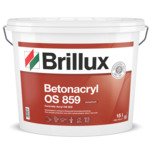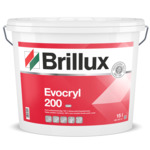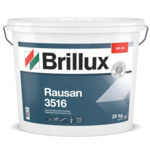Pommernstraße, Tornesch
Dark color shades and ceramic coverings on a residential complex from the 1970s.
Board
Location Pommernstraße 75/79, 25436 Tornesch
Builder Wohnungsbaugesellschaft m.b.H. Th. Semmelhaack Elmshorn
Color concept Brillux color studio Hamburg
Execution Hans-Jürgen Rath GmbH Schenefeld
Modern colorfulness with intense, dark red shades, white, light gray, anthracite and ceramic coverings on a thermally insulated facade? The residential complex in Pommernstraße in Tornesch proves effectively how these two technical challenges can be met. The 40 year old high-rise buildings were not only fitted with an efficient thermal insulation, but were also given a completely new, highly attractive look. High-quality residential complex and a value-preserving object management are the focus on Elmshorner Wohnungsbaugesellschaft m.b.H. Th. Semmelhaack. But how can the 17,000 square meter facade be fitted with high-quality thermal protection and also be given an attractive design? The key idea behind the color concept from the Brillux color studio Hamburg is a modern colorfulness with intense red shades, white, light gray and anthracite. The assignment of the different color shades resulted from the architecture of the building, that suggested structuring the surfaces into vertical rectangles of different heights. The combination of render and clinker brick creates a link with the surrounding architecture. Intense, dark color shades like red and anthracite on a thermally insulated facade and the material combination with ceramic coverings on ETICS – that was two technical challenges at once. To apply a dark color on a rendered and thermally-insulated substrate, an extremely high reflection behavior in the infrared range is required. With SolReflex, Brillux developed special infrared-reflecting color formulas that reduce the “heat build-up” of the ETICS surfaces and enable even thermally-insulated facades to be coated in dark, intense color shades. A single coating with the facade paint equipped with the SolReflex system was sufficient to reduce the surface heat build-up. This meant that even the darker color shades in the design could be applied on the thermally insulated facade with no problems. The use of ceramic coverings on ETICS was another technical challenge. Due to the higher weight per unit area as a result of the ceramic coverings, the thermal insulating composite system also had to fulfill higher requirements. For this durable, yet demanding material, gluing, reinforcement, anchoring and all expansion joints had to be planned precisely. The measures were implemented successfully and a high-rise building with efficient thermal insulation and a highly attractive appearance was created in Pommernstraße in Tornesch.














